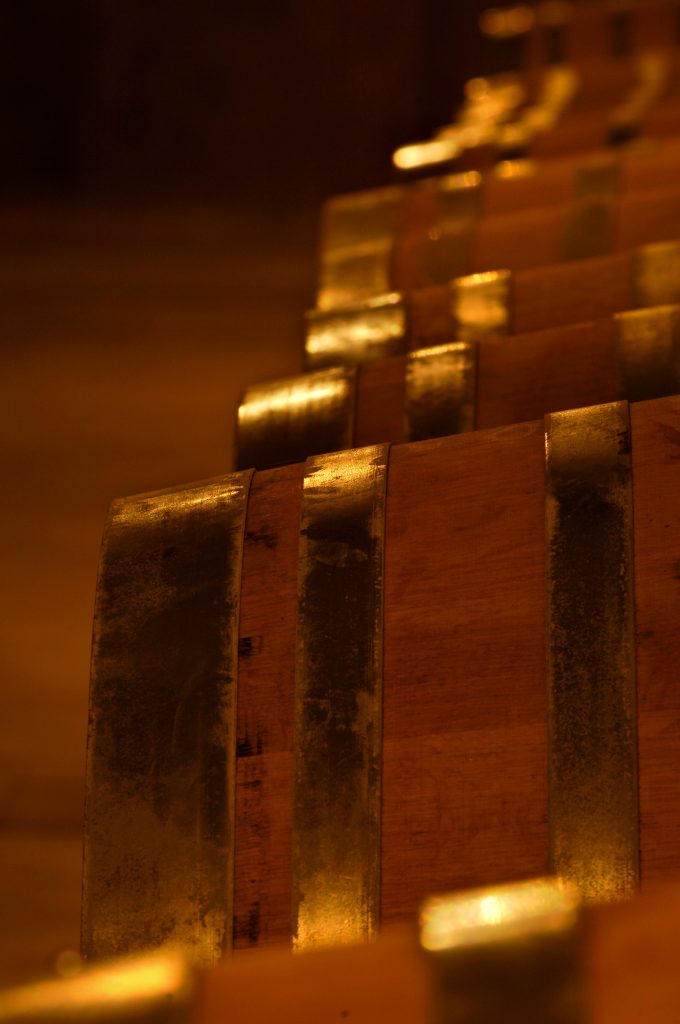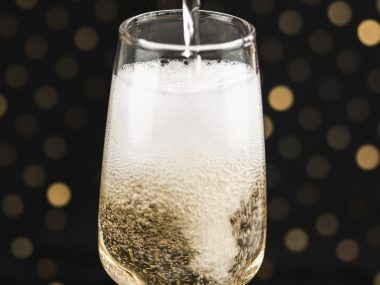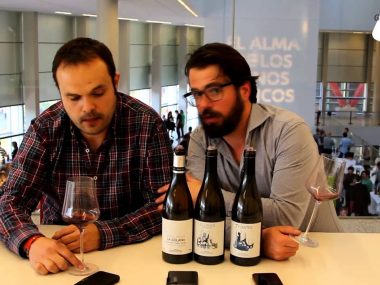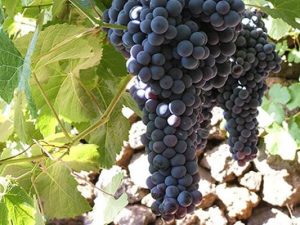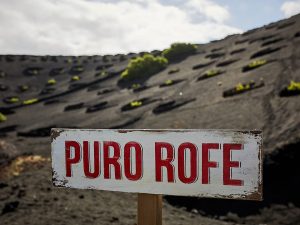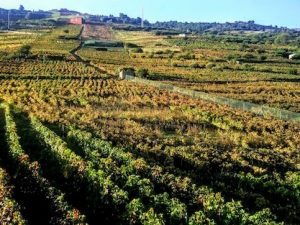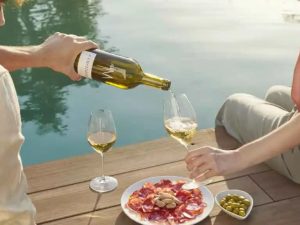To give priority to the fruit and quality of the grapes. To ensure that the wines transmit the expressions of the terroir, through agriculture that respects nature, ecology and biodynamics. Paula Fernández, oenologist at the Dominio do Bibei winery, based in the Ribeira Sacra, explains in this interview with Gourmet Hunters the maxims behind this project, which offers us fine, authentic, elegant and balanced wines.
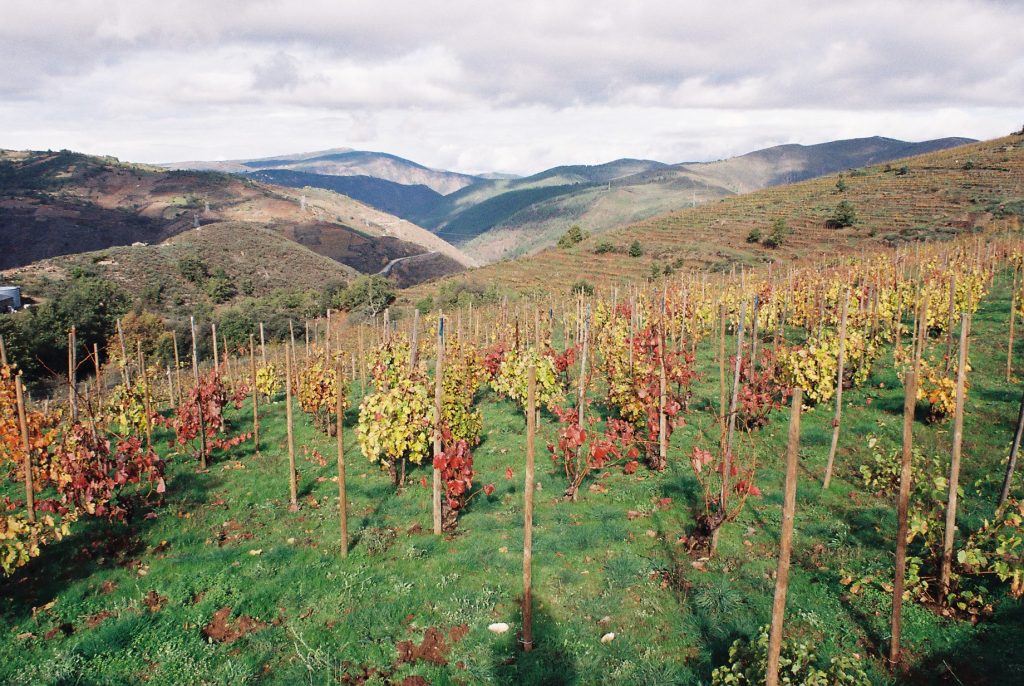
How would you define the philosophy behind the Dominio do Bibei winery?
We maintain the original idea of fine, delicate, mineral and elegant wines. Our project was born in 2002, from the enthusiasm of a small group of people whose origins are precisely in that terroir and whose life’s journey has brought them back. Dominio do Bibei is a unique piece of land framed in a landscape. The philosophy is to interpret and transmit the Dominio do Bibei terroir, and to do so we rely on the local native castes, grape varieties with centuries of adaptation to the terrain. Grape quality, priority to fruit, the key to a great wine is strictly and purely the result of a superior vineyard. We seek to extract the maximum purity from the land, and to do so we follow the principles of ecological and biodynamic agriculture. The only thing we do in the winery is intervene to preserve the best possible way that fruit obtained.
What importance does the terroir have in the wines of Dominio do Bibei Winery?
The project revolves around the search for the expression of the terroir, which is of vital importance. We practice a viticulture that respects nature and we seek to transmit everything that surrounds us in the most elegant and subtle way possible in the form of wine. We believe that our terroir can evolve and progress as long as we have the capacity to understand, observe and interpret it, allowing it to express itself at the best level to make wines that express place, area and vintage.
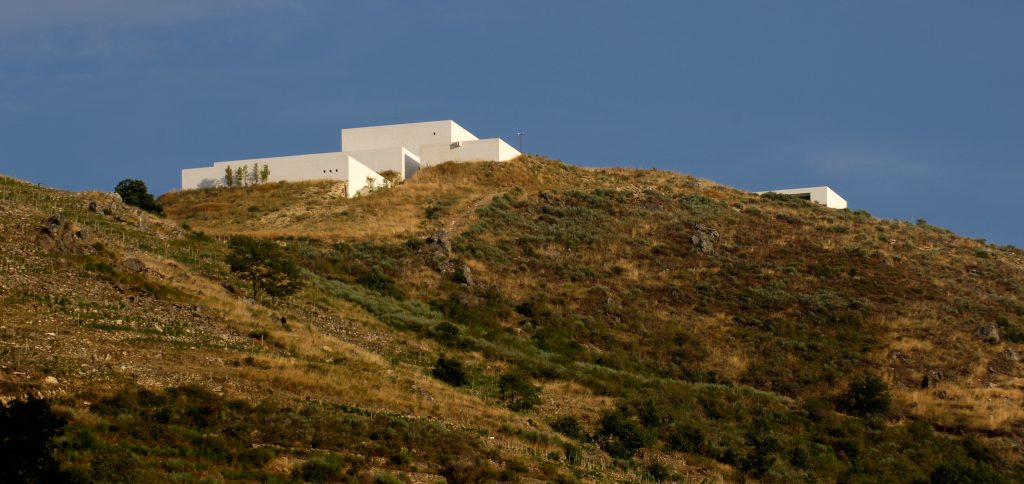
What construction system have you used to adapt your vineyards to the slopes of the landscape?
We have respected the traditional construction of the territory, our ancestors used the “sucalcos” or vineyard terraces, these sculpt and decorate the slopes over the river Bibei. The “sucalcos” or “socalcos” are walls that form terraces on steep slopes, so that the land is not washed away by the torrential rains. This curious form of cultivation is recommended by experience and imposed by necessity. They have been key pieces in the development of the cultivation of the vine in the whole Ribeira Sacra. For the creation of these terraces we first raised the retaining walls and then these are filled with earth. This can be soil brought in from other places or sometimes the soil is redone with a mixture of brooms or xestas, gorse and livestock manure. We are dealing with land that is difficult to access and sometimes difficult to mechanise. This viticulture requires a lot of manpower, and just by taking into account the steepness of the terrain one can have an idea of the harshness of the work.
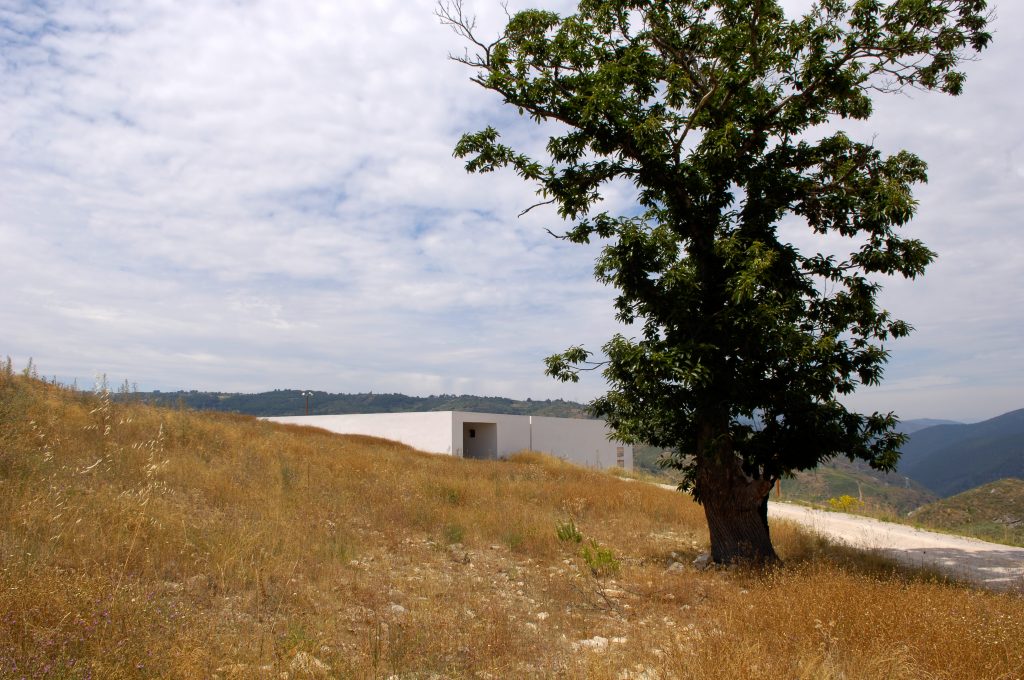
What specific qualities does being produced at altitude give your wines?
Freshness is one of the main qualities of our wines, they have a good balance between acidity and alcohol, a great accumulation of aromas, flavours and tannins. Our vineyards have a higher solar radiation during the day, that allows a correct maturation with a good concentration of sugars and polyphenols. The contrast of day and night temperatures favours slow ripening and maintains acidity. But these qualities are also marked by the origin of the soils in which our vineyards are located, mostly of granite origin, although there are also areas of slate, as well as by the way we manage the vegetation, avoiding intense exposure to the grapes at all times. The height is our landscape and is transmitted in our wines in the form of freshness, austerity, intensity and delineation.
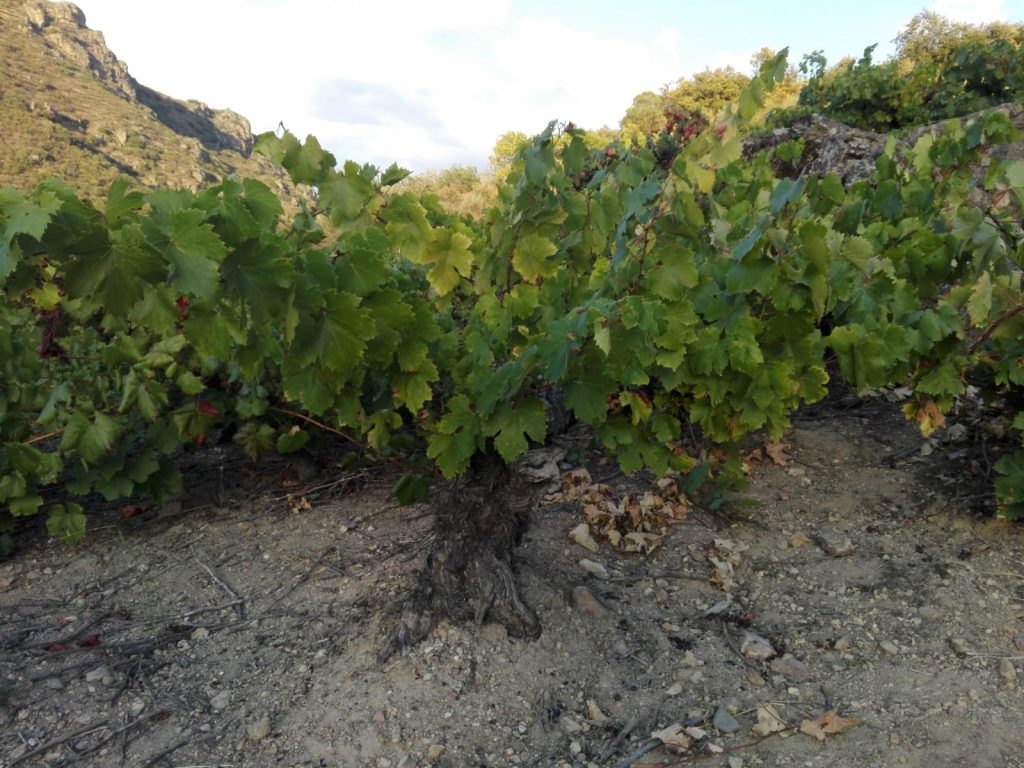
What is the place of gravity in your production processes?
For those who are not familiar with the winery, the construction of it has tried to enhance the landscape by giving all the prominence to the intrinsic values of the environment and intervening in an anonymous way. With the premise that the winery could dialogue with the natural preexisting conditions and seeking its complete integration into the landscape, it was built by fragmenting the different buildings and distributing them on the steep slope in a staggered manner. This conceptual strategy, based on the traditional system of construction on slopes, allowed us to have a minimum impact on the visual panorama and to resolve our intention to use gravity as a system of wine production. Therefore, gravity is not that it occupies an important place in the production of our wines, but rather that it defines our way of making them. Different processes such as the filling of the truncated cones, the debourbage, the filling of the barrels, until the final coupage of the wines is done by gravity without applying any type of pumping and avoiding the wine to suffer alterations due to movement. The aim of working with gravity is to improve the quality of the wine throughout the entire winemaking system.
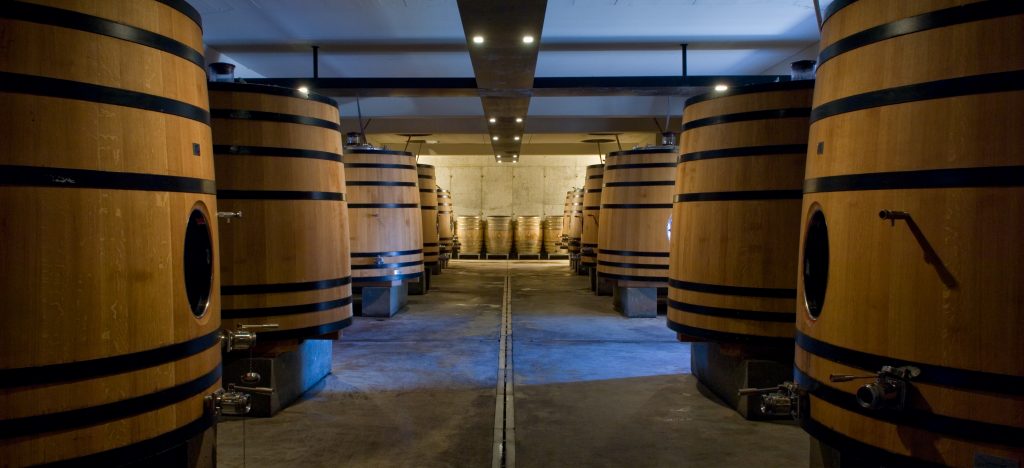
What do you think are the most outstanding attributes of your Lapola aged white wine, your Lalama red reserve wine, and your Lacima red reserve wine?
Lapola white wine is a vintage wine because of its tension and freshness, it is refined and with a vocation for keeping it in time it gains in depth and delicacy. A pure terroir wine. Lalama is the wine that represents the most traditional Bibei, but with a certain refinement. It is a fine wine of great complexity and balance. Lacima is an exclusive, unique and unrepeatable red wine from several vineyards in the area that stood out from the beginning because of their particular soil. We try to reflect that terroir in each bottle of Lacima, a fluid, elegant, fresh and mineral wine that brings it closer to the whites, but without forgetting the complexity of the reds. In all of them I would highlight their good potential for aging.
How do they stand out on the domestic and foreign markets?
The current pandemic is affecting the world wine sector, sales are falling as a large number of restaurants remain closed. This is an unusual situation and we hope to return to normal as soon as possible. We intend to continue growing both in the internal and external market, and we hope that we will soon be able to travel to visit and support our current partners.
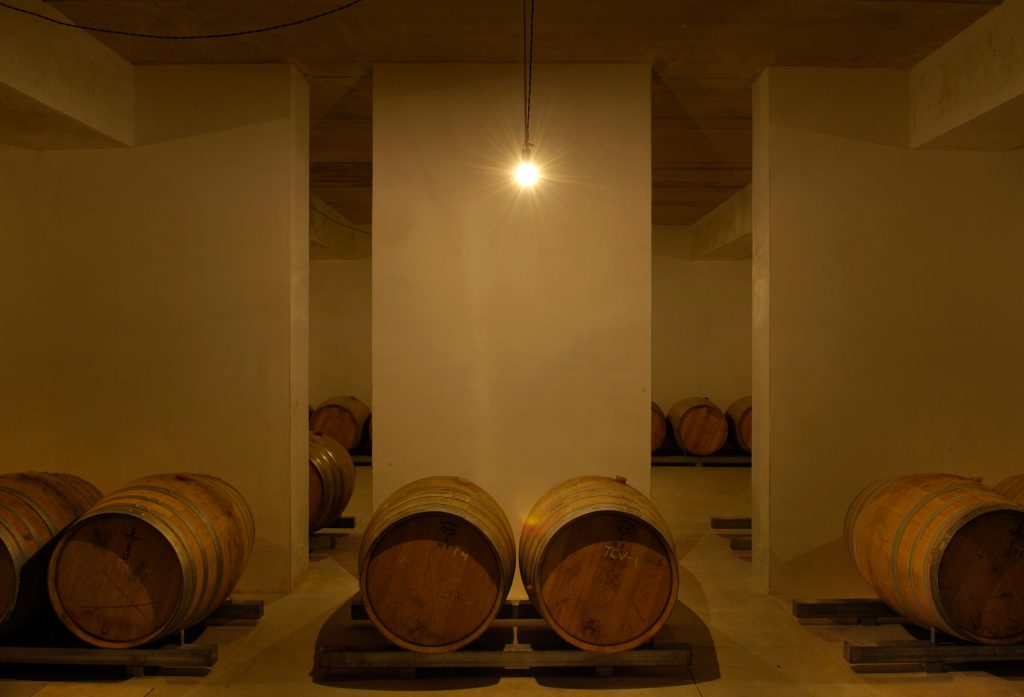
What can we expect from the Dominio do Bibei winery in the coming years?
We intend to continue improving over the years, learning from our mistakes and recycling ourselves. To get to know our vineyards better, to make wines that excite, to continue creating life in the Bibei Valley by recovering old vineyards and to continue planting new ones. Also to remain faithful to our principles of making fine, elegant and mineral wines.
Will we be able to find a wine without added sulphites in the near future?
Wine needs time and dedication, we are working very carefully to be able to lower the levels of sulphur, but always with prudence. We may be able to make a wine without sulphites.
